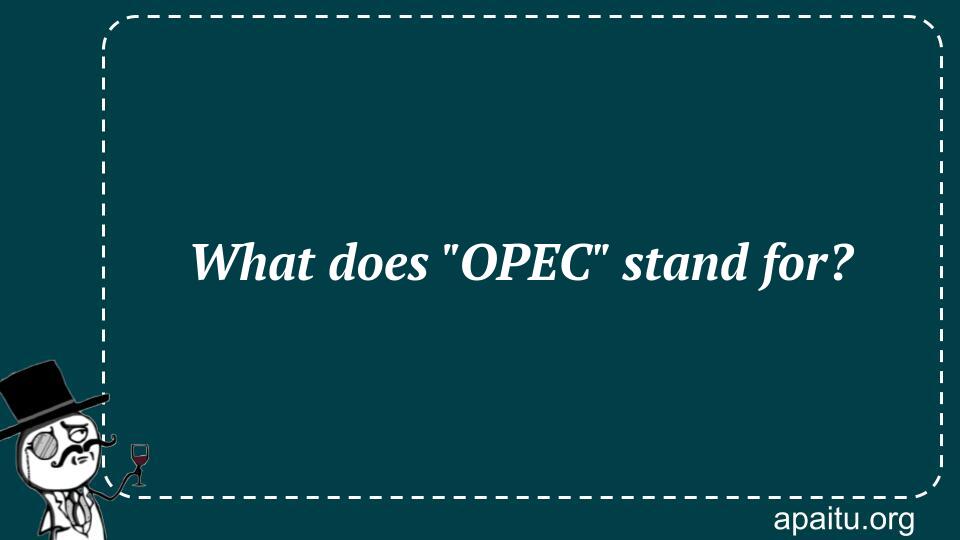Question
Here is the question : WHAT DOES “OPEC” STAND FOR?
Option
Here is the option for the question :
- Oil Production Economic Cooperative
- Optimal Practices in Economics Coalition
- Organization of the Petroleum Exporting Countries
- Oversight Peer Economic Committee
The Answer:
And, the answer for the the question is :
Explanation:
The Organization of the Petroleum Exporting Countries (OPEC) is an organization comprised of the major oil-producing nations that, among other things, coordinates petroleum policies. Because oil is such a significant industry in the Middle East, nations such as Saudi Arabia have long understood that they have a number of commonalities with other nations in the region that also produce oil. Baghdad, Iraq served as the location for the initial meeting that led to the formation of the Organization of the Petroleum Exporting Countries in 1960. Although membership in OPEC is not exclusively restricted to nations located in the Middle East (nations from Latin America, Africa, and Asia have all served at various times), the majority of the organization’s influence lies in this region of the world, and more specifically in Saudi Arabia.

The Organization of the Petroleum Exporting Countries (OPEC) is a powerful international organization that controls a significant portion of the world’s oil supply. Founded in 1960 by five countries – Iran, Iraq, Kuwait, Saudi Arabia, and Venezuela – OPEC has since grown to include 13 member countries, including several in the Middle East and Africa.
The primary goal of OPEC is to coordinate and regulate the production and sale of petroleum products among its member countries. By controlling the supply of oil, OPEC is able to exert significant influence over global oil prices and the overall health of the oil industry.
One of the key tools that OPEC uses to achieve its goals is the setting of production quotas for its member countries. These quotas dictate how much oil each country is allowed to produce, with the goal of maintaining stable prices and preventing excess supply from flooding the market.
OPEC also plays an important role in international politics. The organization has been involved in numerous conflicts and negotiations over the years, as member countries seek to protect their interests and influence global affairs.
OPEC has faced numerous challenges over the years. One of the biggest challenges has been the rise of alternative energy sources, such as solar and wind power, which could potentially reduce the demand for oil in the future. OPEC has also faced criticism from environmental groups and other organizations for its role in the production and sale of fossil fuels, which contribute to climate change and other environmental problems.
the Organization of the Petroleum Exporting Countries (OPEC) is a powerful international organization that plays a significant role in the regulation of the global oil industry. Its member countries work together to coordinate production and sales, with the goal of maintaining stable prices and protecting their interests. While OPEC faces numerous challenges and criticisms, it remains a key player in the world of energy and international politics.